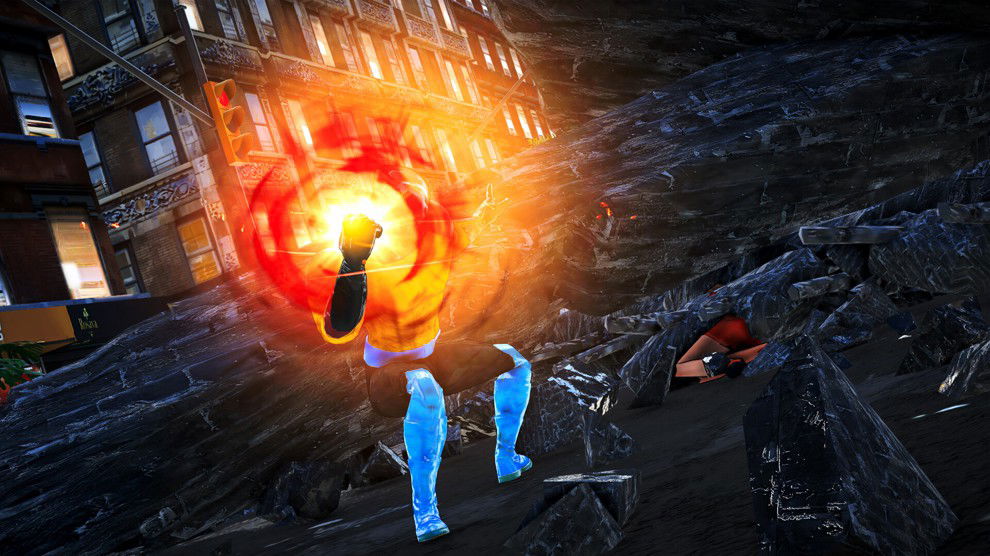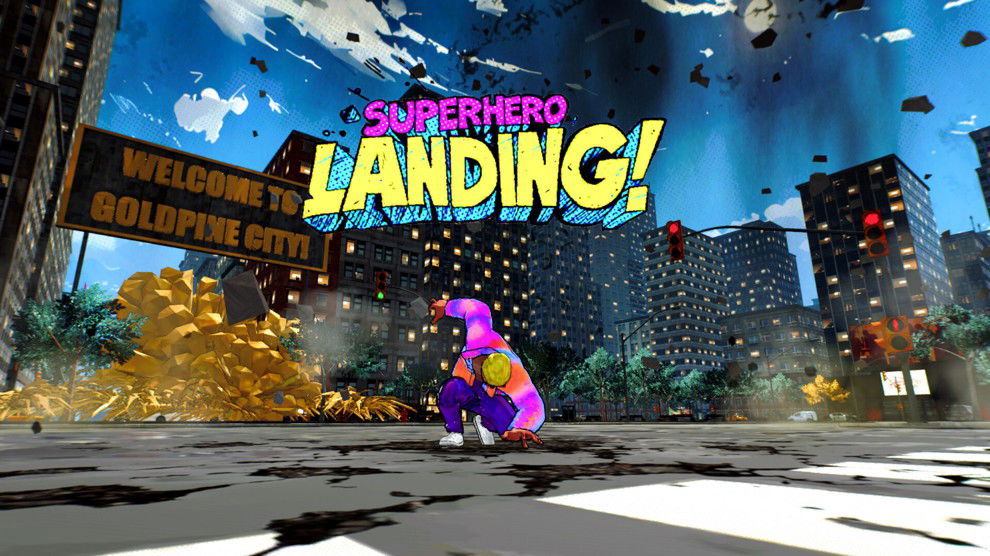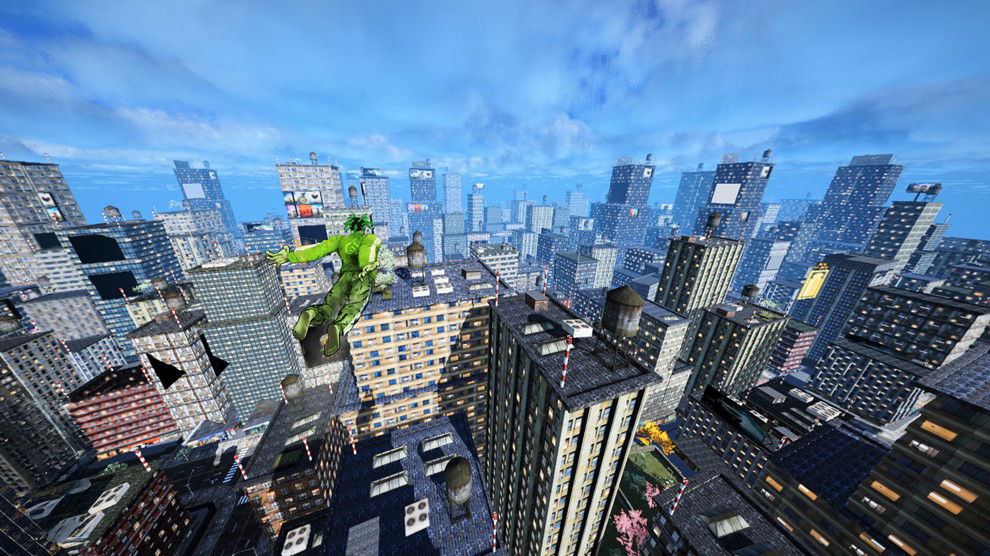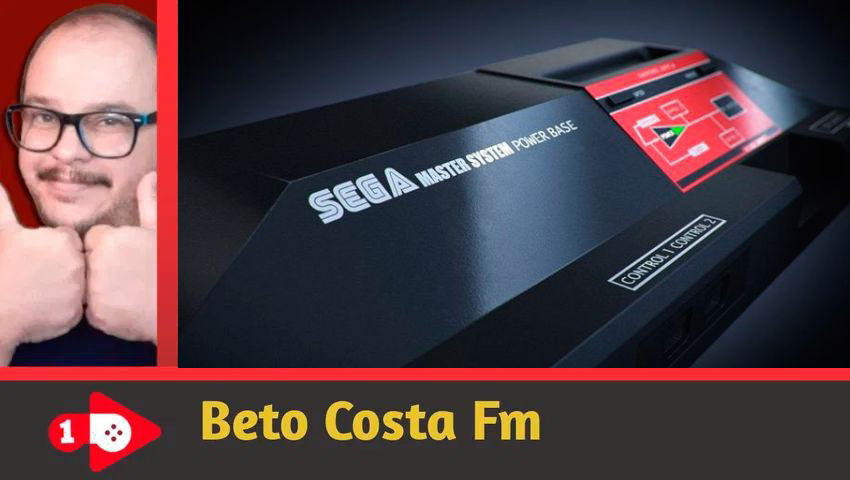For years, the idea that it‘d be impossible to create a good Superman game has been repeated. The excuse has always been the same: a hero who's too strong, flying at high speeds, and nearly indestructible wouldn't make for a fun experience.
This assertion never made much sense; after all, we've had solid examples in the past, like the classic The Death and Return of Superman for the Sega Genesis and SNES, which showed that, with creativity, even the blue Kryptonian can be adapted.
Now comes SuperHero Simulator, still in Early Access on Steam, which proves two things: first, that it’s possible to do something exciting in this style; second, that there’s still a long way to go before the game becomes what it promises.
The double life of a failed hero
The game was created by the independent studio Mightyraccoon! Studios, and puts the player in the role of a man who leads a life far less glamorous than one might imagine for someone with superpowers. During the day, you're just another ordinary citizen, forced to scrape by to pay rent and support even a lazy brother who doesn't leave the couch. Survival options involve mundane jobs like driving a taxi, serving customers at the cash register, or flipping burgers in quick minigames.

When night falls—or, more effectively, when you decide to quit work mid-shift—things change. Then you become the city's last hope, a superpowered hero who must solve everything from minor setbacks to complete disasters. This duality of everyday life and heroic duty is the essence of the game and also where its first flaws appear.
The ungrateful daily life of saving the world
Money, here called Gollars, is the basis for keeping your character running. It's what you use to buy food, hygiene items, equipment, and upgrades. The economy is cruel: if you don't put in the effort, you don't pay the bills, and if you don't pay the bills, the hero's life becomes increasingly unviable. At the same time, you need to keep an eye on several metrics: health, cleanliness, sanity, and even the city's level of respect for you. If any of these elements are neglected, your crime-fighting effectiveness downhills.
When there's finally time to exercise heroism, the game reveals its most fun side: flying through the skies. This part was carefully crafted and conveys a sense of power and freedom that immediately recalls the comics. Just a few minutes gliding over the buildings is enough to make you feel like a digital Superman. The flight is comparable to what we saw in Saints Row IV or DC Universe Online, and while it doesn't reach the technical level of Anthem, it's by far the highlight of the experience.
But the city never rests. Emergencies arise at an almost absurd rate: robberies, fires, accidents, missing people… there's always something to do, and it's humanly impossible to keep up with it all. Worse: every time you fail to help, a mocking radio announcer steps in to emphasize your failure. The saved citizens aren't very cooperative either, as most react with ingratitude and sarcastic jokes. The idea of portraying heroism as exhausting and underappreciated may be interesting, but in the end, it turns the journey into a more stressful than satisfying experience.
Taxi driver or supervillain?
One of the strangest moments happens when you actually try to live the daily routine of a regular worker. As a taxi driver, for example, following traffic rules is practically impossible. The only way to get to your destination quickly is to cut corners, crash into other cars, and speed like there's no tomorrow. When I tried to be "proper," all the customers left complaining and angry, as if I were the worst taxi driver on the planet. Result: I felt like a greater threat to the city driving than I did facing masked bandits.

This dissonance permeates much of the quests. The rescue, combat, and salvage minigames ultimately boil down to repetitive, often poorly designed tasks. Combat, for example, consists of simply mashing the attack button with occasional blocks. Rescues, on the other hand, involve challenges so quick and poorly calibrated that they seem to require powers of divination. At first, it's tolerable, but after an hour, the repetition becomes tedious.
The limitations of Early Access
The game's biggest problem, however, isn't the grueling grind, but rather the lack of real progression. There's no skill tree that allows you to develop a hero your way. What exists is a linear sequence of unlocks: laser beam, increased strength, extra stamina, and so on. You don't build an identity; you simply follow a predetermined list that inevitably resembles a blatant rip-off of Homelander from The Boys. Even the uniform ends up being virtually identical, which takes away much of the fun.
Character customization is also disappointing. The hero creator offers few mask and cape options, with no variety in hairstyles or details. Everything seems limited to a few generic, uninspired templates. The marketing talks about creative freedom, but in practice, you choose between three or four lifeless looks. Even the ability to choose a heroine is only promised for next year, which shows how embryonic the feature still is.
And then there's the massive use of artificial intelligence. Much of the art, textures, and even the characters' voices are created by AI, and this is evident. The lines sound like they're coming from a nervous GPS, emotionless, and unnatural. It's understandable that a small studio would want to use automated tools, but the execution is so generic that it compromises the game's atmosphere. Perhaps, in future updates, these voices and images will be replaced with human versions, but for now, everything feels artificial and cold.
The potential that lies behind chaos
Despite its flaws, there's something interesting about the concept. Few games truly explore the impact a double life would have on a hero's daily routine. We usually see the grandiose side: saving the world, defeating villains, protecting innocents. SuperHero Simulator attempts to balance this with the mundane side: paying rent, dealing with stress, and making time for family. This blend, while poorly executed at the moment, is promising.

It's different, for example, from what happens in Spider-Man games, which almost always focus on the heroic life and leave Peter Parker's everyday life as a backdrop. Here, the opposite happens: the lives of "ordinary people" are given as much space as the action, and this could pave the way for new approaches to the genre.
Pros and Cons
Pros:
- Potential to be an excellent superhero game;
- Convincing flight mechanics;
Cons
- Repetitive minigames;
- Lack of customization;
Conclusion
SuperHero Simulator isn't the Superman game many dream of, but it shows that the idea is far from unfeasible. The flight system alone is enough to prove that it's possible to capture the sense of power that defines the character. The problem lies elsewhere: repetitive missions, stalled progression, almost nonexistent customization, and excessive use of AI make the experience cold and, at times, boring.
On the other hand, if the studio has the stamina to evolve the project, there's room for something truly innovative. A game that explores not only the act of saving the day, but also the struggles of being human amid urban chaos, could yield unique experiences. The balance between working to pay the bills and, at the same time, saving a collapsing city, if well-honed, has everything it needs to launch a new subgenre within superhero games.
In its current state, SuperHero Simulator is more of a draft than a finished product. A sketch that entertains briefly in some moments, frustrates in others, but that keeps alive the flame that, one day, Superman — or someone very much like him — may finally win a game worthy of the myth he represents.











— Kommentare 0
, Reaktionen 1
Sei der erste der kommentiert